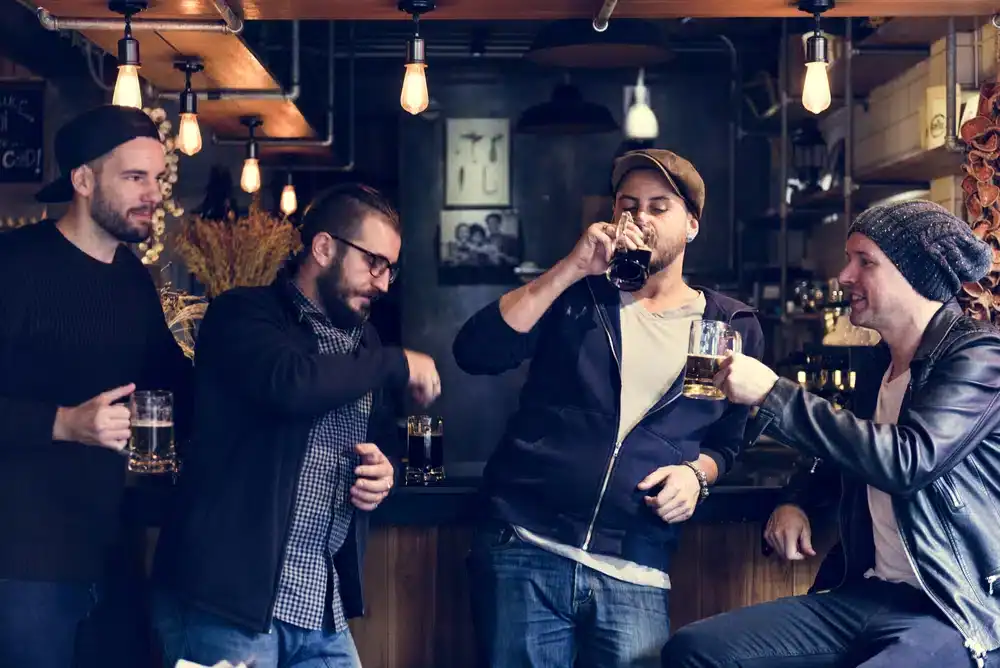What is a Functioning Alcoholic?
A functioning alcoholic is someone who is able to maintain a relatively normal life despite struggling with alcohol addiction. They go to work, pay their bills, and care for their families, all while drinking heavily. On the surface, functioning alcoholics seem to have it all together.
They hold steady jobs, own homes, and provide for their loved ones. But behind closed doors, they’re dealing with an alcohol use disorder that is damaging their health, relationships, and quality of life. Though functioning
alcoholics are adept at hiding their addiction, there are some signs to look out for.
They may make excuses to drink, become irritable when unable to drink or lie about how much they’ve had. You might notice them drinking alone, drinking at inappropriate times like first thing in the morning, or becoming anxious at social events where alcohol isn’t available.
Common Signs and Behaviors of a Functioning Alcoholic
Functioning alcoholics are adept at hiding their addiction, but there are a few telltale signs to look out for:
- Drinking increasing amounts of alcohol over time to feel its effects. A functioning alcoholic needs more and more alcohol to feel drunk.
- Unable to cut back or stop drinking despite repeated attempts. They may want to quit or cut back but find themselves unable to follow through.
- Giving up hobbies, social activities, and responsibilities that were once important in favor of drinking. Their life starts to center around alcohol.
- Continuing to drink even though it’s causing problems like relationship issues, health issues, or issues at work or school. The desire to drink outweighs the consequences.
- Making excuses to drink, like only drinking on special occasions or to relieve stress. In reality, any occasion becomes an excuse to drink.
- Hiding or lying about the amount of alcohol consumed. They may drink in secret or lie about the amounts to hide the severity of their addiction from others.
- Experiencing withdrawal symptoms when not drinking like irritability, nausea, restlessness, anxiety, and trouble sleeping. The body has become dependent on alcohol.
- Strong urges to drink, even early in the day. They feel like they need alcohol to relieve stress or boredom.
- Spending lots of time drinking, recovering from drinking, or getting alcohol. Their drinking causes them to give up or reduce social or recreational activities.
- Drinking in unsafe situations like driving. They continue to drive after having several drinks, putting themselves and others at risk.
- Health or relationship problems due to alcohol, but they keep drinking. They recognize alcohol is causing issues but aren’t able to quit or cut back.
- Increased tolerance. They need to drink much more to feel drunk or buzzed. Or, they feel less effect from the same amount of alcohol.
Treatment for a Functioning Alcoholic
Getting treatment for alcohol use disorder can help functioning alcoholics regain control of their lives. The most effective treatments combine multiple approaches:
Medications
Several medications may be used to help manage alcohol withdrawal symptoms and support recovery.
- Disulfiram (Antabuse): Disulfiram causes unpleasant side effects like nausea and vomiting if you drink alcohol after taking it. It works by blocking the breakdown of alcohol in your body. The effects can last up to 14 days after stopping the medication.
- Naltrexone (Vivitrol): Naltrexone comes as a pill or monthly injection. It reduces alcohol cravings by blocking the pleasurable effects of drinking. Studies show it can decrease the risk of heavy drinking days and help support abstinence. The injectable form, Vivitrol, only needs to be administered once a month by a doctor.
- Acamprosate (Campral): Acamprosate helps rebalance brain chemistry disrupted by alcohol dependence. It’s thought to reduce symptoms like anxiety, insomnia, and restlessness that can trigger alcohol cravings and relapse.
- Gabapentin (Neurontin): Though not FDA-approved for alcohol addiction, gabapentin may be used off-label to manage withdrawal symptoms and support recovery. It works by slowing certain nerve activity in the brain that may be disrupted by long-term alcohol use.
Therapy
Therapy for alcohol use disorders can help you develop skills and strategies to stop drinking and stay sober.
- Cognitive behavioral therapy (CBT) helps identify negative thoughts about your ability to stay sober and teaches coping strategies to prevent relapse. CBT therapists work with you to recognize triggers and cravings, avoid risky situations, and develop a strong support system.
- Motivational enhancement therapy focuses on increasing your motivation and confidence in your ability to maintain sobriety. The therapist helps weigh the pros and cons of drinking to strengthen your motivation for change. This approach uses empathy, encouragement, and praise to help you build motivation from within.
Accepting You Have a Problem is The First Step in Recovery
Accepting you have a problem is the first step to overcoming an addiction. For those struggling with an alcohol use disorder, acknowledging you have lost control of your drinking is difficult but necessary.
Don’t suffer in silence. At New Jersey Recovery Center, we understand how hard it is to quit drinking when alcohol is so ingrained in everyday life. Our compassionate staff is here to offer hope and guide you to recovery. Through detox, rehabilitation, and aftercare, we provide a safe space for you to reflect, heal, and build the foundation for your sobriety.
You don’t have to go through this alone. Take the first step and reach out to us today at (908) 913-7399. We are here for you every step of the way. Recovery is a life-long journey, but together, we can help you reclaim your freedom from alcohol addiction.

